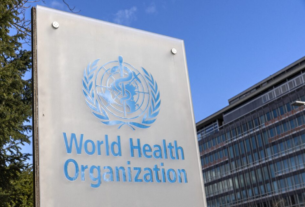The United States has officially designated six Mexican drug cartels as foreign terrorist organizations (FTOs), intensifying its efforts to combat drug trafficking and organized crime. The move comes as U.S. officials push for tougher measures against criminal groups responsible for smuggling fentanyl and other illicit drugs into the country.
Among the cartels added to the list are the Jalisco New Generation and Sinaloa cartels, Mexico’s two most powerful organized crime groups. Also included are Tren de Aragua and Mara Salvatrucha, violent gangs with ties to Venezuela and El Salvador, which have been involved in transnational criminal activities.
The terrorist designation expands the legal tools available to U.S. authorities in their fight against drug cartels. It allows the government to impose harsher penalties on individuals and entities that support these organizations, including freezing assets and broadening prosecution efforts.
Officials argue that this measure is necessary to curb the influence of cartels, which they blame for fueling the fentanyl crisis. The synthetic opioid has caused a sharp increase in overdose deaths in the U.S., leading to growing calls for stronger action against those responsible for its distribution.
Despite these claims, experts remain uncertain about how the designation will change U.S. enforcement strategies. Some analysts believe that the move is largely symbolic, as law enforcement agencies already have extensive powers to go after cartel leaders and financial networks.
However, the decision has sparked fears that it could open the door to more aggressive U.S. military actions against cartels. Some Republican lawmakers have called for airstrikes and special operations missions against cartel facilities, arguing that these groups pose a national security threat.
Mexico has strongly opposed any potential military intervention by the U.S. on its soil. Mexican officials insist that drug trafficking should be addressed through binational cooperation, intelligence sharing, and economic reforms rather than military force.
María Calderón, a researcher at the Wilson Center’s Mexico Institute, sees the designation as a political strategy rather than a major shift in policy. She argues that labeling cartels as terrorist organizations gives U.S. leaders more leverage in pushing for tougher actions, even if direct intervention remains unlikely.
The decision comes at a time of heightened tensions over border security and migration. U.S. officials have linked cartel activities to human smuggling and increased violence along the border, further fueling demands for stricter enforcement measures.
Critics warn that this approach could strain U.S.-Mexico relations and complicate diplomatic efforts. Some experts argue that treating cartels as terrorist organizations risks militarizing the war on drugs and could lead to unintended consequences, such as harming innocent civilians.
For now, it remains unclear how the designation will impact ongoing efforts to combat drug trafficking. The U.S. government is expected to continue using legal and financial tools to weaken cartel operations while navigating the complex relationship with Mexico.




